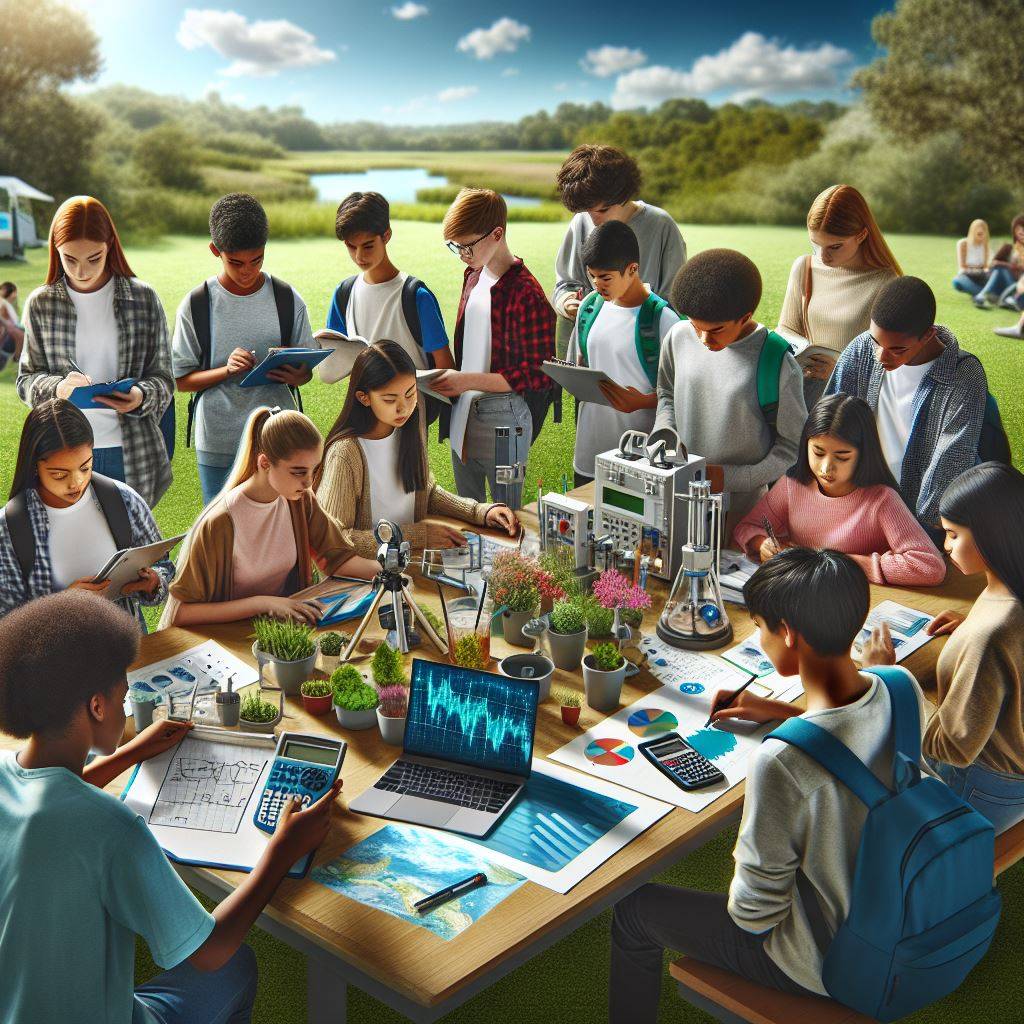
ABOUT THE ENGINE PROJECT
The Environmental Science and Geometry in Natural Environments (EnGINE) Project
The overarching purpose of the Engine Project is to elevate and nuture students' mathematical and STEM identities through integrated steM experiences.
Mission of the ENGINE Project
The mission of the ENGINE Project is to ignite a passion for STEM in middle school students by fostering a strong mathematical identity and inspiring a deeper interest in pursuing STEM careers. Through hands-on, real-world learning experiences, particularly in informal settings such as summer STEM camps, we aim to demonstrate the interconnectedness of mathematics and other STEM disciplines. These camps provide students with opportunities to engage directly with STEM fields, highlighting their vital role in addressing global challenges. By emphasizing the societal impact of STEM, the project empowers students to build confidence in their mathematical abilities, reshape their perceptions of math, and recognize STEM as an accessible, transformative tool for creating positive change in their communities.

Collaborative Vision Behind the ENGINE Project
Dr. Kudaisi initiated the ENGINE Project with the goal of creating an interdisciplinary
approach to mathematics education. To make the project more authentic and impactful,
she brought together educators from fields such as environmental science, science
education, engineering, coding, robotics, and social studies. A key emphasis of the
project is promoting informal STEM learning through engaging summer STEM camps. These
camps provide hands-on, real-world experiences that encourage students to explore
STEM in an interactive and accessible way, while highlighting its potential to address
global challenges and create positive change in their communities.
Programs
CAMP LIT - STEM CAMP
At Camp LIT, students explore the science of electric light, its environmental and societal impact, and energy efficiency through hands-on activities. They create light circuits, investigate energy usage, and learn about the effects of light on plants, animals, and humans, including topics like light pollution and circadian rhythms. Campers also apply coding and robotics to design innovative solutions for light pollution, while developing their own research projects to address real-world challenges using STEM concepts.
THE STEAM GREEN TEAM - AFTER-SCHOOL PROGRAM
The STEAM Green Team is an after-school program that uses STEAM (Science, Technology, Engineering, Art, and Mathematics) to explore innovative green strategies and solutions to environmental issues. Students engage in hands-on projects, applying their knowledge of math, technology, engineering, and art to develop sustainable solutions for real-world environmental challenges.


PRINCIPAL INVESTIGATOR

Dr. Queshonda Kudaisi
Assistant Professor of Mathematics Education I Principal Investigator I Camp Facilitator
CONTRIBUTORS

Dr. Daniel Krutka
Associate Professor of Social Studies Education I Guest Faciliator for CAMP LIT

Dr. Chris Long
Assistant Professor of Science Education I Guest Faciliator for CAMP LIT

